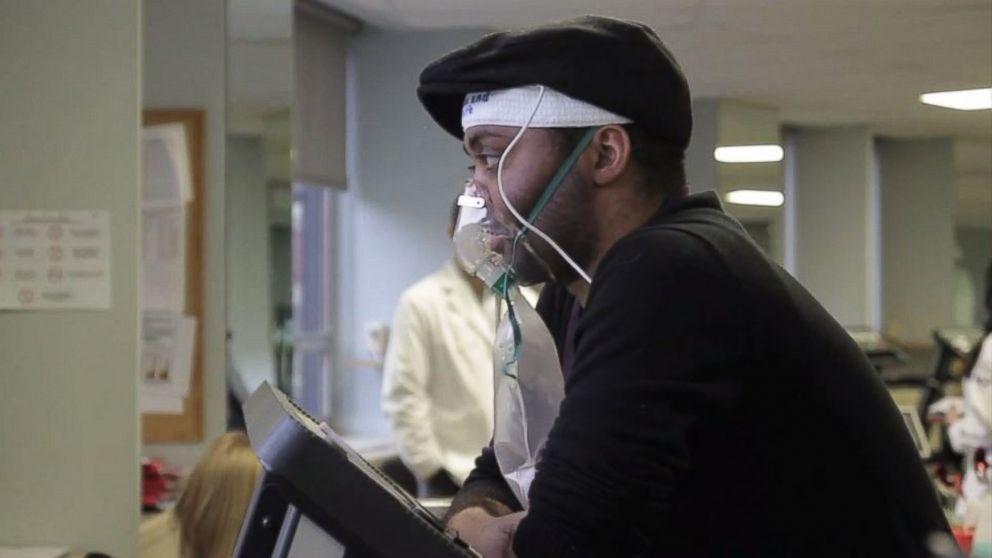HIV Transplant Patient Has 'HOPE' Following Bill's Passage
Nov. 22, 2013— -- Lamont Valentin has lived with HIV since he was born nearly 30 years ago. After his mother died at age 6, he was placed in the foster care system and had only intermittent contact with his family members. As he grew up, Valentin remembers hearing from different adults that he was so sick he probably never would make it to adulthood, much less have a family of his own.
"In my teen years I wasn't worried much about my future," said Valentin. "But the older I got the more reality set in that 'Oh I might make it.'"
Today Valentin has his HIV under control with an undetectable viral load and stable t-cell count. He's married and a father to 18-month-old Mason, which are two things he never thought possible when he was growing up. Neither Valentin's wife nor his son is HIV positive.
HIV Hot Spots are Stark Reminder of Deadly Disease
However, at age 29 Valentin is still sick, possibly sicker than he's ever been before.
As a child, Valentin had numerous cases of pneumonia related to his HIV that irreparably damaged his lungs. At age 27 just before the birth of his son, he was suddenly hospitalized with chronic obstructive pulmonary disease and pulmonary hypertension.
"Everything happened really fast," remembered Valentin. "I'm just like damn I might not see my son's first birthday."
In the past 18 months, as Mason has grown taller and taken his first steps, Valentin has remained at home with his son tethered to a 30-foot-long green oxygen tube that connects to an oxygen compressor. If he wants to go further than the tube allows, he has to transfer to a portable oxygen container. It's a feat that has become impossible for him without the help of his home health aide or his wife.
Without a lung transplant, Valentin's doctors have told him he likely won't survive past the next few years.
HIV Undetectable in Two Patients After Bone Marrow Transplant
Although he has worked with his doctors and social workers to get try to get on an organ transplant list in New York, he has been unsuccessful. Multiple times his pulmonologist has told him that no New York transplant center will take him due to his HIV status.
However a new law passed on Thursday may help Valentin and other potential HIV positive transplant patients get access to vital organs.
The HOPE act signed by President Barack Obama on Thursday will allow HIV positive organs to be used in organ transplants by HIV positive recipients, creating a larger pool of organs for transplants. The law changes part of the language of the Organ Transplant Amendments Act of 1988, written at the height of the AIDS scare, that federally banned HIV positive people from becoming organ donors.
Until the HOPE act was signed, HIV and AIDS remained the only conditions that federally banned a person from being an organ donor.
Dr. Dorry Segev, a transplant surgeon at Johns Hopkins Medical Center, worked to help get the HOPE act passed and said the law could help hundreds or potentially thousands of HIV positive people in need of organ transplants.
"This is also great news for anyone on a transplant list, because the more organs we have for transplantation, the more lives will be saved," said Segev. "We estimated that there are hundreds of organs that could be used for HIV-positive patients who need them; the more we learn about this practice, the more those transplants will be possible."




